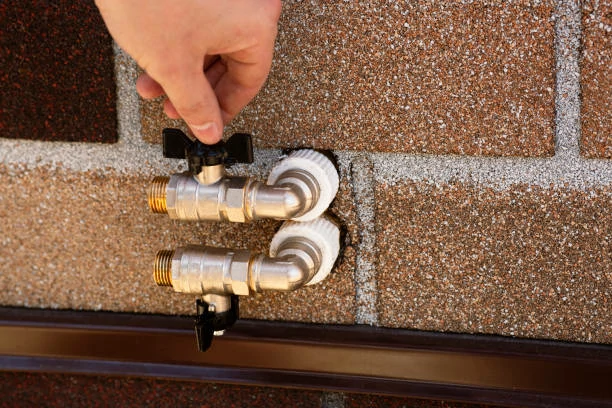Polypropylene Random Copolymer (PPR) piping have emerged as an environmentally friendly choice in construction, offering numerous benefits that contribute to sustainable building practices. This article explores the environmental advantages of opting for PPR piping, emphasizing their positive impact on ecological well-being

1. Recyclable Materials and Circular Economy Practices
One of the key environmental benefits of PPR piping lies in their use of recyclable materials, aligning with the principles of a circular economy.
1.1 Polypropylene’s Recyclability: PPR piping are crafted from polypropylene, a thermoplastic known for its recyclability. This characteristic allows for the recovery and reuse of materials, reducing the demand for new raw resources and minimizing the environmental impact of production.
1.2 Reduced Carbon Footprint: Choosing PPR pipings contributes to a reduction in the carbon footprint associated with construction projects. The incorporation of recycled materials in the production of PPR piping helps diminish the overall environmental burden, making them an eco-conscious choice.
1.3 Circular Economy Practices in Construction: PPR pipings support circular economy practices by promoting the recycling loop. Recycling PPR materials promotes a sustainable approach to construction, wherein repurposing materials continuously extends their life cycle.
2. Energy Efficiency in Manufacturing PPR piping
The manufacturing process of PPR piping is designed for energy efficiency, contributing to a more sustainable and eco-friendly construction industry.
2.1 Low Energy Consumption: Producing PPR piping requires less energy compared to some traditional piping materials. The energy-efficient manufacturing process reduces the overall environmental impact associated with the extraction and processing of raw materials.
2.2 Resource Conservation: The energy-efficient production of PPR piping contributes to the conservation of natural resources. By minimizing the energy demands of manufacturing, PPR pipings play a role in preserving ecological balance and reducing the strain on non-renewable resources.
2.3 Green Building Certification Credits: The energy-efficient and environmentally conscious manufacturing practices associated with PPR piping can contribute to earning green building certification credits. This recognition further emphasizes the positive environmental attributes of choosing PPR as a construction material.
3. Longevity and Reduced Environmental Impact
PPR pipings’ longevity and durability translate to a reduced environmental impact over the life cycle of a construction project.
3.1 Extended Service Life: PPR pipes exhibit longevity, surpassing the lifespan of certain traditional piping materials. The extended service life of PPR pipes means less frequent replacements, reducing the need for new materials and minimizing construction-related waste.
3.2 Minimal Maintenance Requirements: The durability of PPR pipings results in minimal maintenance requirements. Reduced maintenance means fewer resources, such as energy and materials, are needed for repairs or replacements over time, contributing to a more sustainable construction approach.
3.3 Waste Reduction and Landfill Impact: Choosing PPR piping supports waste reduction initiatives. The long life span of PPR pipes means less material ends up in landfills, reducing the environmental impact associated with the disposal of construction-related waste.
conclusion
In conclusion, the environmental benefits of choosing PPR piping for construction extend beyond their functional properties. From recyclable materials and energy-efficient manufacturing to the longevity that reduces environmental impact, PPR pipes contribute to sustainable building practices. As the construction industry increasingly prioritizes eco-friendly solutions, PPR pipes emerge as a valuable component in creating environmentally conscious and sustainable structures.
Contact:
IFAN is a manufacturer with 30 years of experience, specializing in plastic pipes, fittings, and valves in China. If you are interested in IFAN’s copper valves, PPR valves, pipes, and fittings, feel free to contact us. IFAN provides various standard pipes to meet your specific needs. Click the link below to explore IFAN’s diverse, cost-effective valve products, as well as related pipeline system products.
We will reply your email or fax within 24 hours.
You can call us at any time if there is any question on our production.
For more information,pls visit our webside https://www.ifanplus.com/
Pls Mailto: [email protected]






